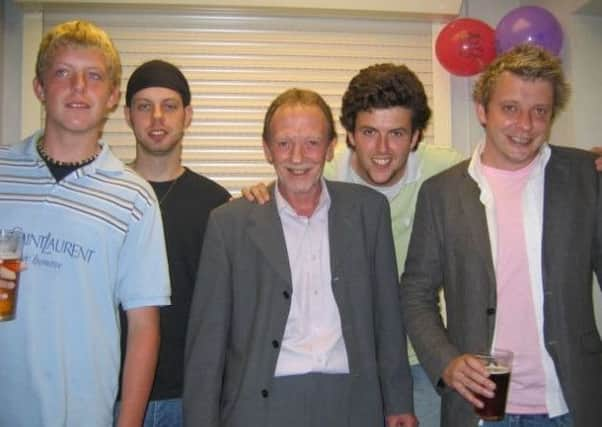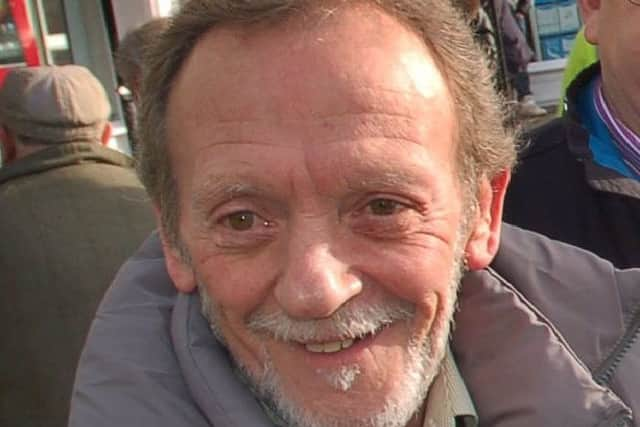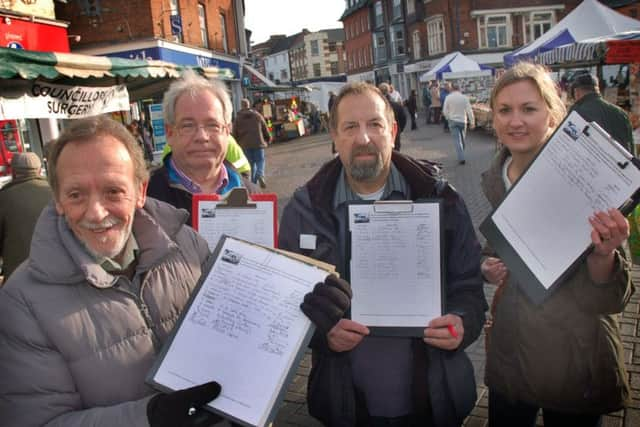Anguished family compensated four years after death of Melton councillor


The death of Trevor Moncrieff, who represented Asfordby ward, devastated his four sons and left them angry that a faulty defibrillator and delays over hospital treatment reduced his chances of surviving.
Mr Moncrieff’s son, Matthew, was with his father when he had the heart attack on September 1, 2014, and when he called 999, East Midlands Ambulance Service (EMAS) sent the nearest available crew, a private ambulance service.
Advertisement
Advertisement
The ambulance arrived in less than 10 minutes but the staff could not get their defibrillator to work and Matthew said he was alarmed to have to perform emergency chest compressions on his father, despite not being a qualified first aider, while the crew members attempted to get the machine to work.


A call was then made to the fire service, who then arrived on the scene with their own working defibrillator to kick-start Mr Moncrieff’s heart.
He was taken to Grantham Hospital, which does not have a specialised heart attack centre, before it was decided, two hours later, he should be treated at Lincoln Hospital, where he could access more specialist cardiac treatment.
Mr Moncrieff had surgery but he never regained consciousness and passed away on September 6, 2014.
Advertisement
Advertisement
His family launched a legal claim against East Midlands Ambulance Service (EMAS) and United Lincolnshire Hospitals NHS Trust for clinical negligence and they have now received out-of-court compensation on behalf of both trusts of around £6,600.


Professor Stephen Brecker, a consultant cardiologist at St George’s Hospital in London, filed a report for the family’s legal claim on the circumstances leading up to Mr Moncrieff’s death.
He concluded that the failure of the initial attempt to resuscitate him with the faulty defibrillator and the 30-minute delay before a working machine could be used ‘was a significant factor in determining his eventual outcome’.
Michael Moncrieff, one of Trevor’s sons, said the family were particularly unhappy about the treatment given by the private ambulance crew and their faulty defibrillator and they are concerned other people could suffer the same distress if the failings are repeated.
Advertisement
Advertisement
He said: “Whilst we have received compensation we are fundamentally concerned with the grave issues that the case presented.
“We are unhappy about the extreme recklessness and damage caused by the privatisation of core NHS services, as we are clear in our belief that the litany of errors is not a failing of the NHS nor its staff but the relentless requirement to cut costs through privatisation and other means, regardless of the impact on individual service users.”
Michael added: “Our view as a family is that the NHS is an incredible service and what it does to provide an ambulance to anyone who needs one is wonderful.
“But is shocks and scare me, that if my father had had his heart attack 30 minutes later another ambulance would have been available and given him the care he needed and we would probably wouldn’t have been talking about all this four years later.”
Advertisement
Advertisement
Michael said his father, who was a Labour councillor for Egerton ward in Melton for four years and Asfordby for the last three years of his life, was a passionate supporter of the NHS.
But he added: “Dad was a very caring man and I know that if this happened to one of his own constituents he would have pursued it as strongly as we have done.
“It’s a very traumatic event losing a loved one but in these circumstances it hurts just a little bit more.”
EMAS said in a statement that it uses a number of private providers to support its own ambulance services to help meet demand when the need arises and that they are ‘governed by the same clinical and operational standards as our own service’.
Advertisement
Advertisement
Chief executive Richard Henderson said: “I would like to take this opportunity to apologise to Mr Moncrieff’s relatives and once again offer my condolences for their loss.
“We have accepted that mistakes were made and a claim by Mr Moncrieff’s family has been settled and a full investigation into how we responded has been carried out.
“Lessons have been learned and appropriate action has been taken.
“We have offered to discuss the findings directly with Mr Moncrieff’s family and I hope a meeting can be arranged as soon as possible.”
Advertisement
Advertisement
The EMAS trust’s overall rating remains as ‘requires improvement’ following last year’s inspection but Care Quality Commission (CQC) inspectors found that it had made significant improvements in urgent and emergency care since their previous visit in 2015.
This year it received an additional £9million for extra clinical staff, ambulances and other resources to help it respond more quickly and more consistently to 999 calls and urgent GP requests for ambulances.
In the months leading up to his death, Mr Moncrieff had been campaigning with others for a permanent ambulance base to be established in the town after the closure of the former station.